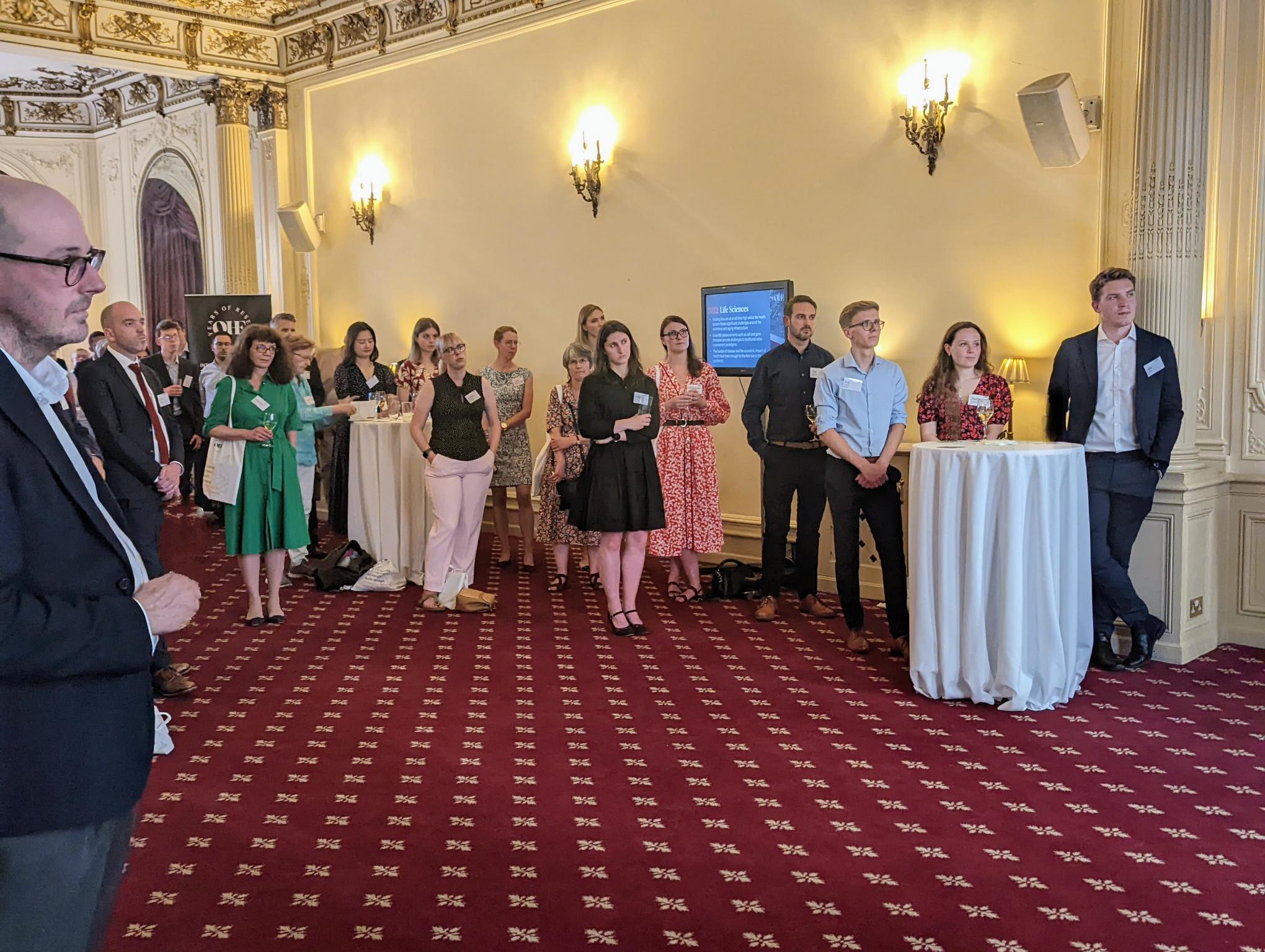Unlocking the Value of Combination Therapies



This recent research is intended to inform changes in NICE’s approach to assessing the value of medical technologies. Throughout the year, OHE presents a number of Lunchtime Seminars intended to discuss important current issues in health economics. On 30 January,…
This recent research is intended to inform changes in NICE’s approach to assessing the value of medical technologies.
Throughout the year, OHE presents a number of Lunchtime Seminars intended to discuss important current issues in health economics. On 30 January, OHE invited Dr Donna Rowen of the University of Sheffield to present her recent research on defining social preferences.
Throughout the year, OHE presents a number of Lunchtime Seminars intended to discuss important current issues in health economics. On 30 January, OHE invited Dr Donna Rowen of the University of Sheffield to present her recent research on defining social preferences.
Dr Rowen’s seminar presentation was based on the results of a recent paper, Eliciting societal preferences for burden of illness, therapeutic improvement and end of life for value based pricing, which she co-authored with colleagues in the Department of Health Policy Research Unit in Economic Evaluation of Health and Care Interventions (EEPRU) at the University of Sheffield. The paper uses evidence from a large, online, discrete-choice experiment to measure the public’s preferences about assigning treatment priority based on severity of illness, likely gain in quality of life, and whether a patient is near the end of life. Survey participants were asked to indicate which patient subgroups should be assigned higher priority by the NHS, allowing the authors to calculate the strength of any social preference for providing health care to the sickest patients first.
The research is intended to inform changes in 2014 in NICE’s methods of value assessment. NICE may replace the existing system of QALY multipliers for end-of-life patients with a more detailed system of burden-of-illness weights derived from the results of the studies by Dr Rowen and colleagues.
The slides for this presentation may be viewed and downloaded by clicking here.
OHE’s Koonal Shah also has been involved in research intended to determine public preferences and assess alternative methods for collecting such perspectives. His research, undertaken in collaboration with colleagues from the University of Sheffield, used similar methods and focused specifically on attitudes towards assigning priority for end-of-life treatment. However, Koonal’s study presented information to survey participants in slightly different, but potentially important ways, such as describing each patient’s gain from treatment rather than health status or life expectancy as the result of treatment.
In January, Koonal presented his findings at the University of Oxford as part of the Health Economics Research Seminar Series at the University of Oxford. His presentation appears below.
Koonal’s related publications include:
Shah, K.K., Tsuchiya, A. & Wailoo, A.J., 2013. Valuing health at the end of life: an empirical study of public preferences. European Journal of Health Economics, Epub ahead of print. doi: 10.1007/s10198-013-0482-3.
Shah, K. & Devlin, N., 2012. Understanding social preferences regarding the prioritisation of treatments addressing unmet need and severity. Research Paper 12/05, London: Office of Health Economics.
Shah, K., Praet, C., Devlin, N., Sussex, J., Appleby J. & Parkin, D., 2012. Is the aim of the English health care system to maximize QALYs? Journal of Health Services Research and Policy, 17(3), pp. 157-164.
Shah, K., Tsuchiya, A., Risa Hole, A. & Wailoo, A., 2012. Valuing health at the end of life: a stated preference discrete choice experiment. NICE Decision Support Unit report. Sheffield: Decision Support Unit.
For further information, please contact Koonal Shah.
An error has occurred, please try again later.
This website uses cookies so that we can provide you with the best user experience possible. Cookie information is stored in your browser and performs functions such as recognising you when you return to our website and helping our team to understand which sections of the website you find most interesting and useful.
Strictly Necessary Cookie should be enabled at all times so that we can save your preferences for cookie settings.
If you disable this cookie, we will not be able to save your preferences. This means that every time you visit this website you will need to enable or disable cookies again.
This website uses Google Analytics to collect anonymous information such as the number of visitors to the site, and the most popular pages.
Keeping this cookie enabled helps us to improve our website.
Please enable Strictly Necessary Cookies first so that we can save your preferences!
